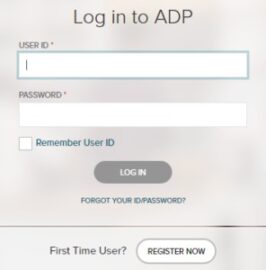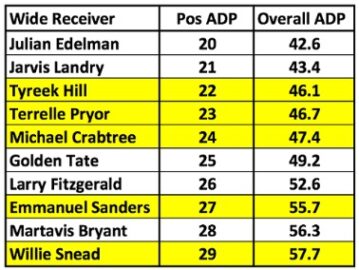26 CFR § 1 174–4 Treatment as deferred expenses. Electronic Code of Federal Regulations e‑CFR LII Legal Information Institute

However, the inherent assumption within US GAAP is that the reported amounts of assets and liabilities will be recovered and settled, respectively. Thus, the only question is when, not whether, the deferred tax liability will reverse. Once the company consumes or receives the product or services from the supplier, it can remove the deferred expense asset. On the other hand, it must record the expense incurred at that point.
Carriage Services Announces Second Quarter 2023 Results — GlobeNewswire
Carriage Services Announces Second Quarter 2023 Results.
Posted: Wed, 02 Aug 2023 20:25:40 GMT [source]
It can’t, because the magazines haven’t been produced yet, so the cost of goods sold (the costs related to production) cannot be included. Often, differences between book carrying values and the related tax bases are the result of separate objectives between financial reporting standards and income tax regimes. Examples of unearned revenue are rent payments made in advance, prepayment for newspaper subscriptions, annual prepayment for the use of software, and prepaid insurance. Period expenses are those that belong in the current period and are never accrued or deferred. They are not related to specific operations but instead to the whole operation. Examples of period expenses include advertising, marketing, sales and administration salaries and rent.
What Is Deferred Revenue Expenditure?
As a result, adjusting entries are required to reconcile a flow of cash (or rarely other non-cash items) with events that have not occurred yet as either liabilities or assets. Because of the similarity between deferrals and their corresponding accruals, they are commonly conflated. For example, for the taxable year 1954, A, who reports his income on the basis of a calendar year, elects to defer and deduct ratably over a period of 60 months research and experimental expenditures made in connection with a particular project. On July 1, 1956, A first realized benefits from the marketing of products resulting from this process. Therefore, the expenditures deferred are deductible ratably over the 60-month period beginning with July 1, 1956 (when A first realized benefits from the project).
City Office REIT Reports Second Quarter 2023 Results — PR Newswire
City Office REIT Reports Second Quarter 2023 Results.
Posted: Thu, 03 Aug 2023 10:01:04 GMT [source]
It can be clearly seen that the machinery was written off for tax return in three years, whereas it took 5 years in the financial statement to right off the taxes. The depreciation method used for the tax return is a three-year write-off. Whereas the company uses the straight-line method for internal reporting.
What Is the Difference Between an Accrual and a Deferral?
These standardized rules allow companies to be compared to one another and evaluated on the same basis. One of the most important underlying premises in GAAP is the matching of revenues and expenses in the period incurred. For example, if you are a manufacturer and your company spends money building inventory this year but won’t sell it until next year, your current year financial statements will show a large expense and next year’s will show a large income.

Additionally, a deferred tax asset can result from an income tax credit, loss carryover or other tax attribute that is available to reduce future income tax obligations. Common deferred expenses may include startup costs, the purchase of a new plant or facility, relocation costs, and advertising expenses. Used when goods or services are provided to a customer in the current fiscal year but are not billed for until the following fiscal year. Our ledgers at year end represent part of the University of California’s financial standing at that point in time.
Stay up to date on the latest accounting tips and training
Simply stated, the deferred tax model allows the current and future tax consequences of book income or loss generated by the enterprise to be recognized within the same reporting period, providing a complete measure of the net earnings. This advanced payment is recorded as a deferred charge on the balance sheet and is considered to be an asset until fully expensed. Each month, the company recognizes a portion of the prepaid rent as an expense on the financial statements. Also, each month, another entry is made to move cash from the deferred charge on the balance sheet to the rental expense on the income statement. Deferred revenue, on the other hand, refers to money the company has received as payment before a product or service has been delivered.
- The cost is recorded as an asset until such time as the underlying goods or services are consumed; at that point, the cost is charged to expense.
- A company’s deferred tax expenses are the non-cash expenses that contribute to the reporting company’s free cash flow.
- With deferred payments, vendors and customers typically come to an agreement (i.e., a deferred payment agreement) that lets the customer take possession of an item now and pay the cost at a later date.
Anderson Autos is a company with 8 car dealerships in the Seattle, Washington area. Anderson provides each of his dealerships with magazine and newspaper subscriptions so that customers have something to read while waiting. To get a discount, Anderson pays the full subscription amounts in advance of the renewals.
Deferred Expenses
If goods or services have been received on or before June 30th and have not been recorded in the ledgers as an expense it represents an unrecorded liability. In the fiscal close certification letter, Deans, Chairs and Business Officers certify that there are no material unrecorded liabilities. With her student loan payments on hold for three years, Ashley Dorn, a public school music teacher, found another use for the money she saved during the moratorium. She used the extra cash to pay off $10,000 in credit card debt, a bill that had been nagging at her for a decade. Record deferred revenue in your books before you perform services or deliver goods.

Every business has to prepare different financial statements, being a statement of profit and loss, a balance sheet, and a cash flow statement as the most significant ones. Ms. Anderson’s first full-time job out of school, at a veterinary hospital, paid $32,000 annually, and the hospital provided housing at the time. She made one last full student loan payment in March 2020, then a few more $50 monthly payments. But when she found out she would be losing her housing, she stopped making the debt payments to afford rent and other bills. Before the payment pause, Ms. Dorn had been relying on her credit card to cover expenses like an unexpected emergency-room visit, veterinary bills, health care co-payments and new car tires. She used credit to replace their water heater, cover a few car insurance payments, and install a new transmission in her husband’s car.
During the three months of January 1 through March 31 (when the prepaid rent is expiring) the $3,000 prepayment must be moved from the balance sheet asset account to an income statement expense account. If the company issues monthly income statements, the company will prepare adjusting entries to move $1,000 each month from the Prepaid Rent account to Rent Expense. A deferred expense represents spending for which the outflow of economic benefits will occur later. For example, a company pays a supplier in advance resulting in a deferred expense.
Learn How NetSuite Can Streamline Your Business
Deferrals allows the expense or revenue to be later reflected on the financial statements in the same time period the product or service was delivered. Accrual accounting records revenues and expenses as they are incurred regardless of when cash is exchanged. If the revenue or expense is not incurred in the period when cash/payment is exchanged, it is booked as deferred revenue or deferred charges.
Accrued revenue are amounts owed to a company for which it has not yet created invoices for. The multiperiod accounting start date and end date
can’t be edited after the expenses are completely recognized. The Dorns used some of their saved student debt money to book a vacation, too — for July 2025. They plan to celebrate their anniversary in Jamaica, hoping to soak up the tropical atmosphere and explore the marine wildlife.
It represents the amount that is allocated for covering tax liabilities during a period but has yet to be paid. A deferral, in accrual accounting, is any account where the income or expense is not recognised until a future date (accounting period), e.g. annuities, charges, taxes, income, etc. The deferred item may be carried, dependent on type of deferral, as either an asset or liability.
Now that Ms. Burton and her husband have higher paying jobs, they believe an income-driven repayment plan would lead to a higher bill than before. She stopped going to therapy to save on out-of-pocket co-payments and talked to her mother about not being able to help her out as much. (iii) Unamortized expenditures attributable to each project at the beginning of the taxable year in which the application is filed. You purchase all of your materials from Company B and work out a deal where Company B lets you take the materials now and pay for them later.
- Deferred expenses, similar to prepaid expenses, refer to expenses that have been paid but not yet incurred by the business.
- The tax liability is recorded on the balance sheet due to differences in income recognition rules for financial and tax reporting purposes.
- “That conversation is, like, off the table indefinitely,” Ms. Dorn, 33, said.
- As a result, the deferred expenses allocated for the first three years will be higher than the actual.
- Fifteen years after its fire-sale purchase of Lehman Brothers’ core assets jump-started its investment-banking business, the British lender is still trying to find its footing.
- In the fiscal close certification letter, Deans, Chairs and Business Officers certify that there are no material unrecorded liabilities.
Debit your Cash account because the funds to your business increased, and credit your Deferred Revenue account because the amount of deferred revenue is also increasing. For example, say a customer needs 50 new laptop computers for their business. You forrester total economic impact study tell your customer that you can order the computers and deliver them once they are in stock. The customer pays you $500 now ($5,000 X 10%), and you set up an agreement with the customer for them to pay off the remaining balance within 12 months.

